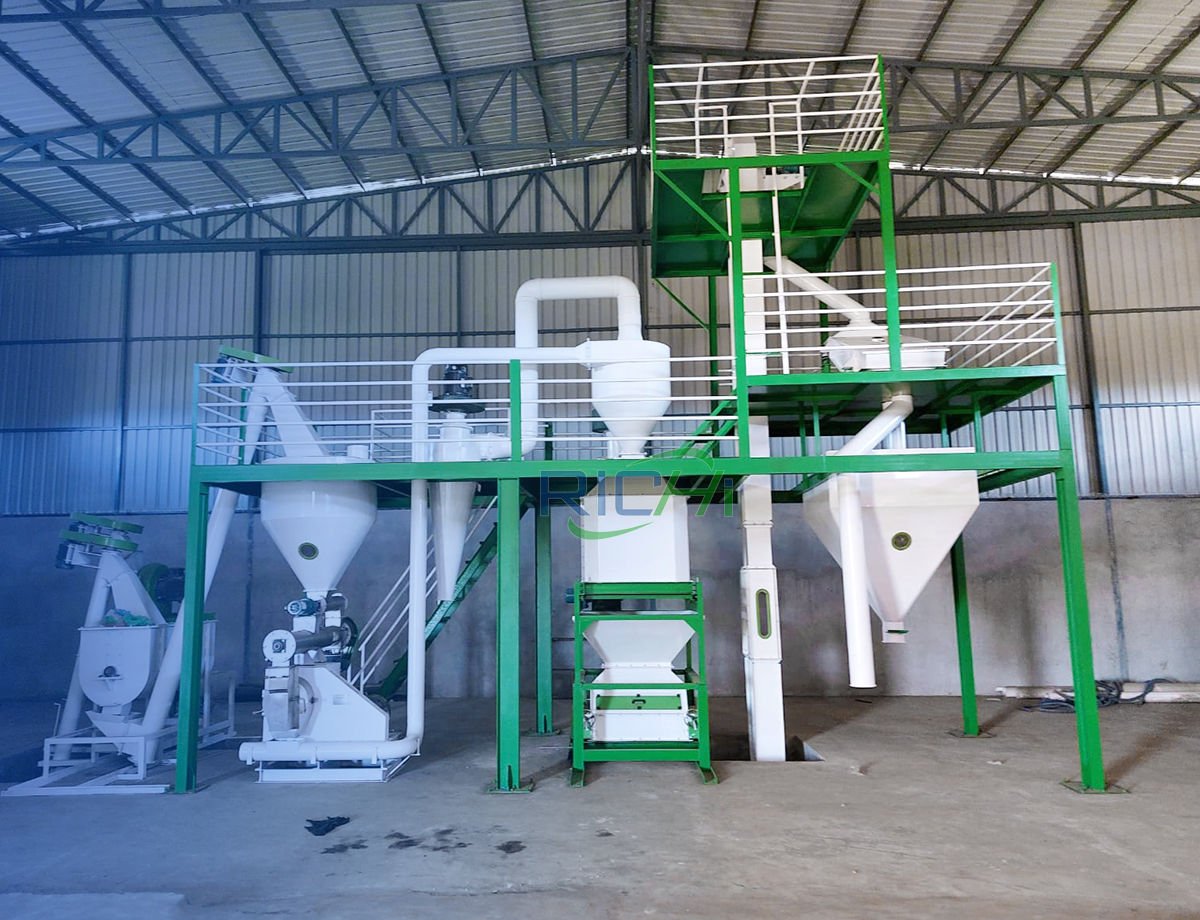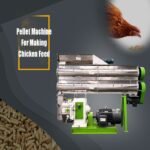The emergence of 1-2 tons per hour (t/h) small scale feed mills represents a significant advancement in local agricultural capabilities, particularly in developing regions and rural areas. These compact facilities are gaining popularity due to their ability to effectively meet local demands and empower farmers and entrepreneurs alike. This article explores the promising outlook for 1-2t/h small scale feed mills and their potential impact on agriculture and economies at the local level.
Meeting Local Demands 1-2t/h small scale feed mills excel in catering to local demands by serving:
- Small to medium-sized livestock farms
- Cooperative farming communities
- Rural areas lacking access to large commercial feed suppliers
Producing feed locally reduces transportation costs and ensures a fresher, more reliable supply. This localized approach supports local agriculture and aligns with sustainability goals by minimizing carbon footprints associated with feed transport.
Empowering Farmers and Entrepreneurs Investing in a 1-2t/h feed mill enables farmers and entrepreneurs to diversify income streams by:
- Producing feed for their own livestock
- Selling surplus feed to nearby farms
- Offering custom milling services tailored to local needs
This vertical integration enhances profitability and creates new business opportunities, particularly in rural economies.
Flexibility and Customization Versatility is a hallmark of 1-2t/h feed mills, capable of producing various feed types including:
- Poultry feed (for layers and broilers)
- Cattle feed (for dairy and beef)
- Swine feed
- Aquafeed (for fish and shrimp)
- Specialty feeds for goats, sheep, and other livestock
This flexibility allows operators to quickly adapt to market demands and specific nutritional requirements using locally available ingredients. (Related post:https://www.richipelletmachine.com/feed-mill-pellet-machine/)
Cost-Effective Solution In developing countries where access to affordable, quality feed is limited, 1-2t/h feed mills offer a cost-effective solution. The relatively low initial investment makes these mills accessible to farmer cooperatives and small enterprises. By strategically locating these mills in underserved areas, they improve feed availability where large commercial operations are economically unfeasible.
Technological Advancements Modern 1-2t/h feed mills integrate advanced technologies such as:
- Automated control systems for precise ingredient mixing
- Energy-efficient motors and processes
- Compact designs that minimize space requirements
- User-friendly interfaces for simplified operation and maintenance
These advancements enhance efficiency, reliability, and ease of operation, even for operators with limited technical expertise.
Supporting Food Security and Rural Development Local feed production contributes significantly to:
- Reducing reliance on imported feed
- Stabilizing feed prices in local markets
- Generating employment opportunities in rural areas
- Promoting local cultivation of feed ingredients
These factors collectively strengthen food security and foster sustainable agricultural practices.
Challenges and Considerations Despite their promise, 1-2t/h small scale feed mills face challenges including:
- Ensuring consistent feed quality without sophisticated quality control systems
- Securing a steady supply of high-quality ingredients at competitive prices
- Developing local technical skills for mill operation and maintenance
- Competing with larger, established feed producers
- Adhering to feed safety and quality regulations
Addressing these challenges is crucial for sustainable growth and long-term viability.
Future Outlook The future of 1-2t/h small scale feed mills appears bright due to:
- Increasing global demand for animal products, particularly in developing regions
- Heightened emphasis on food security through local feed production
- Continued technological innovations enhancing operational efficiency
- Growing preference for sustainable, locally sourced food production
- Supportive policies promoting rural development and small scale feed production
Conclusion 1-2t/h small scale feed mills represent a promising investment in local agricultural development. Their ability to meet local demands, adapt to market dynamics, and promote sustainable farming practices positions them as pivotal players in modern agricultural systems. Despite challenges, the benefits and opportunities they offer make them a compelling choice for stakeholders seeking to contribute to local economic growth and address the rising demand for animal feed. As the sector evolves, these compact yet efficient mills are poised to play an integral role in advancing global agricultural sustainability and food security agendas.
For details please contact: Richi Pellet Mill
WhatsApp:86 138 3838 9622
Email:enquiry@richipelletmachine.com


